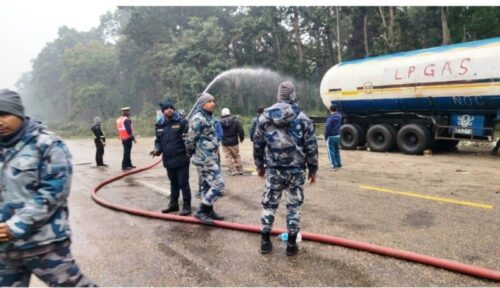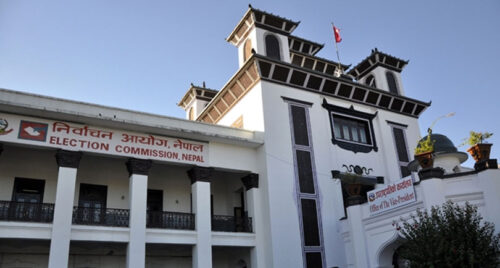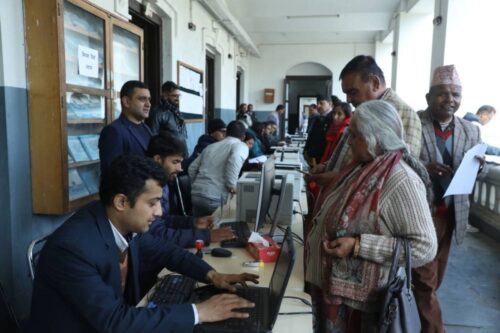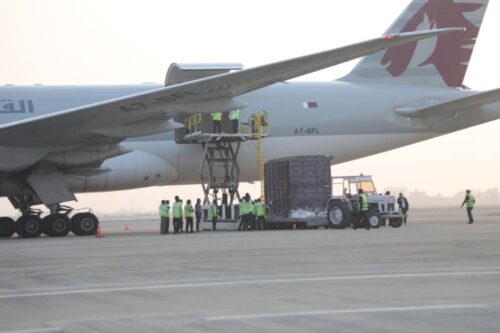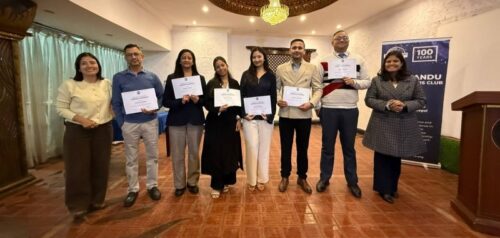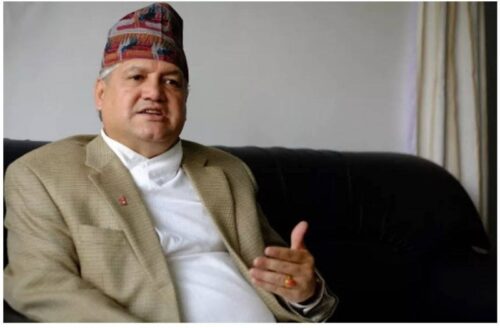The annual gathering of Nepalis engaged in various professions across Germany, “Nepali Roots Conference 2025,” was successfully held with great enthusiasm on August 9 in Munich. Organized by Nepali Roots e.V., this year’s conference was themed “Where ideas meet actions and the community meet opportunities.” The event saw the active participation of 75 individuals including researchers, entrepreneurs, engineers, students, and community leaders working in different cities across Germany.
Nepali Roots is an organization that connects the Nepali professional community in Germany on a common platform for knowledge, skills, and opportunities.
The event was chaired by Dr. Kritan Gautam, President of Nepali Roots, and the opening session began under the leadership of main coordinator Sandeep Bastola. Rabindra Ghimire and Sandeep Bastola from Nepali Roots delivered the welcome remarks. Following this, His Excellency Dr. Shail RupaKheti, Nepal’s Ambassador to Germany, delivered a special address highlighting the potential of utilizing the knowledge, skills, and networks of the Nepali professional community in Germany to foster cooperation between Nepal and Germany. Saurabh Koirala from GIZ Nepal also shared his best wishes, emphasizing the role of institutional partnership and knowledge exchange in sustainable development.
As the keynote speaker, Dr. Maheshwar Rupakheti – a senior climate and atmospheric scientist and research group leader at GFZ Helmholtz Centre, Germany – stated that although Nepal is a low carbon-emitting country, it faces severe impacts from climate change. He called for active collaboration from the diaspora to enhance climate resilience in Nepal through climate finance, institutional strengthening, technical capacity building, and cooperation.
In a panel discussion moderated by Rabindra Ghimire, with speakers Prakash Subedi (Senior Manager, BMW) and Dinesh Paudel (PhD Candidate, TUM & Hyperloop), diverse perspectives were shared on the impact of climate change on the automotive, policy, and technology sectors. The speakers emphasized the rapid growth of electric vehicles (EVs) in Nepal, the need for policy stability, enhancement of technical capacity, use of technology for sustainability, and the importance of cooperation from local to international levels.
Environmental expert and canopy scientist Dr. Yagya Adhikari stressed the need to protect the Himalayas and forests through the collective strength of the diaspora, science, and community collaboration. He highlighted forest restoration, climate-smart agriculture, renewable energy, and international partnerships as key pathways to address the climate crisis.
Dr. Eng. Sharad Bahadur Thapa, a leading researcher in GaN technology, described semiconductors as the backbone of climate resilience. While acknowledging their high energy, water consumption, and carbon footprint, he outlined the potential applications of such technologies in smart agriculture, renewable energy, and electric transportation in Nepal.
Sustainability expert Ranjana Budhathoki presented ESG (Environmental, Social, Governance) as a crucial tool for both risk management and value creation. She stressed the need to expand ESG practices beyond the financial sector in Nepal, promote transparency, and leverage diaspora expertise to attract sustainable investment.
PhD researcher Samip Shrestha discussed the critical importance of remote sensing for risk identification and early warning systems in Himalayan regions.
In another panel session moderated by Suman Simkhada, speakers Navin Raj Gaire (COO, VIDA) and Samip Raut (Founder, Laliguras GmbH) shared insights on the contribution of entrepreneurs and business networks in Germany. The discussion focused on how the Nepali diaspora can positively impact Nepal’s economy and local communities through knowledge and investment, highlighting the need to strengthen entrepreneurship and networking.
Toward the end of the program, participants were divided into four groups for group discussions and solution-building activities, with active involvement from the speakers as well.
In the closing session, Dr. Kritan Gautam, President of Nepali Roots, expressed gratitude to all speakers, participants, and partner organizations. He reaffirmed the commitment to position the conference as a platform for shared knowledge, collaboration, and opportunity creation among the Nepali professional community in Germany. He also announced the plan to organize a similar conference next year and shared intentions to implement this year’s experiences and recommendations more effectively.
The event was supported by GIZ, House of Resources Munich, Himalayan Finance, and Nepal Chautari.



